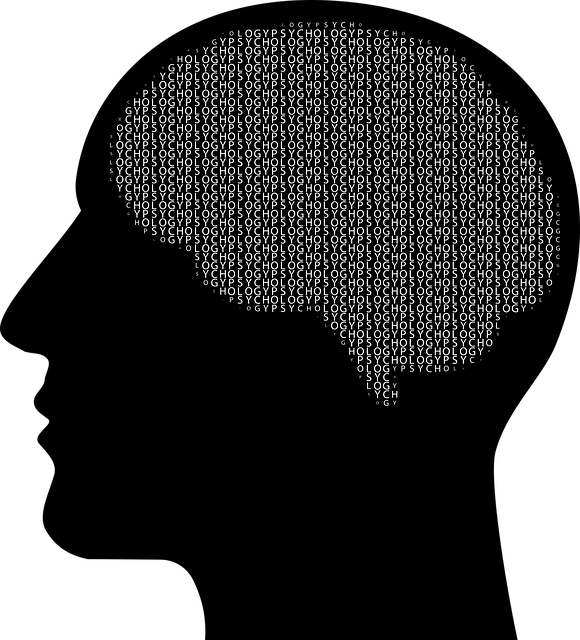Colorado Springs Cognitive Behavioral Therapy (CBT) focuses on building resilience through tailored exercises, mindfulness techniques, and data-driven approaches. The RFM framework (Reach, Frequency, Monetary value) analyzes client engagement, enhancing therapy accessibility and effectiveness. Integrating trauma support and interactive methodologies empowers individuals to manage emotions and navigate challenges. Standardized assessments and cultural sensitivity ensure successful outcomes in CBT programs, fostering emotional healing and resilience within diverse communities.
In today’s fast-paced world, resilience is key to navigating life’s challenges. This article explores how Colorado Springs Cognitive Behavioral Therapy (CBT) integrates RFM (Resilience, Flexibility, and Mastery) techniques to enhance mental well-being. We delve into the science behind resilience, its significance in CBT, and practical exercise design tailored for local clients. Learn about implementing these powerful tools in therapeutic settings and measuring their effectiveness through targeted evaluations. Discover how RFM can empower individuals to thrive amidst adversity.
- Understanding Resilience and its Impact on Mental Well-being
- The Role of RFM in Cognitive Behavioral Therapy (CBT)
- Designing Effective Resilience-Building Exercises for Colorado Springs CBT Clients
- Implementing RFM Techniques in a Therapeutic Setting
- Measuring Success: Evaluating the Effectiveness of Resilience Training
Understanding Resilience and its Impact on Mental Well-being

Resilience is the ability to adapt and bounce back from adversity, stress, or trauma. It’s not about avoiding challenges but rather how one navigates them, learning and growing in the process. Building resilience is a crucial aspect of mental well-being, allowing individuals to lead fulfilling lives despite encountering difficult circumstances. In Colorado Springs, cognitive behavioral therapy (CBT) has been instrumental in teaching people skills to foster resilience.
Through CBT and other therapeutic practices like mindfulness meditation, burnout prevention techniques, and emotional intelligence development, individuals can enhance their coping mechanisms. This holistic approach empowers folks to face challenges head-on, manage stress effectively, and cultivate a positive mindset. By integrating these strategies into daily life, one can strengthen their mental fortitude, leading to improved overall well-being and a greater sense of control over life’s ups and downs.
The Role of RFM in Cognitive Behavioral Therapy (CBT)

In the context of Colorado Springs Cognitive Behavioral Therapy (CBT), RFM—a shorthand for Reach, Frequency, and Monetary value—plays a pivotal role in understanding and enhancing client engagement. This framework goes beyond mere customer analysis by delving into the depth and impact of interactions, offering a strategic lens through which therapists can tailor their approaches. By assessing how often and deeply clients engage with CBT services, professionals can identify areas for improvement, ensuring that therapy remains effective and accessible.
The integration of RFM into CBT practices is particularly beneficial when considering risk assessment for mental health professionals. It facilitates the development of targeted interventions, especially in crisis intervention guidance, by revealing patterns that might indicate a need for additional support or alternative strategies. This data-driven approach not only improves mood management but also empowers therapists to provide more personalized and ultimately, more successful Colorado Springs Cognitive Behavioral Therapy services.
Designing Effective Resilience-Building Exercises for Colorado Springs CBT Clients

In the realm of Colorado Springs Cognitive Behavioral Therapy (CBT), designing effective resilience-building exercises is an art that fosters mental wellness coaching programs development. These exercises should cater to the unique needs of CBT clients, focusing on integrating Self-Care Practices into their daily routines. By creating a structured yet adaptable framework, therapists can guide individuals through challenging situations, enhancing their ability to navigate life’s twists and turns.
The key lies in tailoring activities that promote healthy coping mechanisms and emotional regulation. Incorporating Trauma Support Services elements within these exercises allows clients to process and overcome past traumatic experiences, thereby building a stronger resilience foundation. Through interactive and engaging methodologies, individuals can learn to acknowledge and manage their emotions, ultimately fostering a sense of empowerment and well-being.
Implementing RFM Techniques in a Therapeutic Setting

In the heart of Colorado Springs, cognitive behavioral therapy (CBT) has emerged as a powerful tool for enhancing mental wellness and fostering emotional healing processes. When implementing CBT techniques, integrating RFM (Recall, Feeling, Meaning) exercises can significantly strengthen therapeutic outcomes. These self-awareness exercises encourage clients to delve into their past experiences, explore the emotions attached, and uncover the deeper meanings behind those memories.
By facilitating such introspective practices, therapists in Colorado Springs can help individuals navigate complex emotional landscapes, ultimately enhancing their ability to manage stress, anxiety, or depression. The RFM method, often featured in our Mental Wellness Podcast Series Production, serves as a game-changer when incorporated into CBT sessions. It not only deepens the therapeutic process but also empowers clients with valuable self-regulation skills, ensuring they can continue their emotional healing journey even outside of the therapy room.
Measuring Success: Evaluating the Effectiveness of Resilience Training

Measuring success is a vital aspect of evaluating the effectiveness of resilience training programs, particularly in the context of Colorado Springs Cognitive Behavioral Therapy (CBT). Therapists and mental health professionals must go beyond self-reported outcomes to gain an accurate understanding of their clients’ progress. A comprehensive evaluation strategy should include both quantitative and qualitative measures to assess changes in coping skills development. This may involve administering standardized psychological assessments to track improvements in stress resilience, emotional regulation, and burnout prevention strategies for healthcare providers.
Additionally, cultural sensitivity in mental healthcare practice plays a significant role in success measurement. Therapists should consider the impact of the training on diverse client populations, ensuring that the interventions are inclusive and culturally responsive. By incorporating these evaluation methods, mental health professionals in Colorado Springs can optimize the benefits of resilience building exercises, ultimately fostering healthier and more resilient individuals within their communities.
The implementation of RFM and resilience-building exercises in Colorado Springs Cognitive Behavioral Therapy (CBT) offers a transformative approach to enhancing mental well-being. By integrating these techniques, therapists can equip clients with powerful tools to navigate life’s challenges. Through structured exercises tailored to individual needs, CBT practitioners in Colorado Springs can foster resilience, leading to improved coping strategies and overall emotional health. This comprehensive approach, as evidenced by the article’s discussions, holds significant potential for positive outcomes in therapeutic settings.














